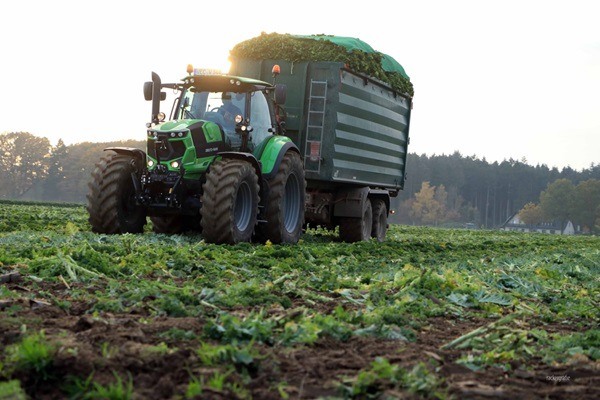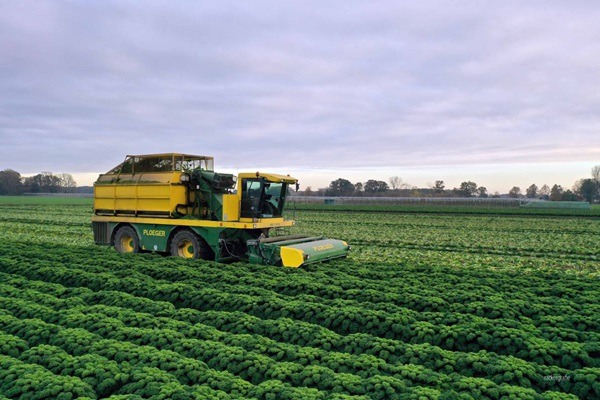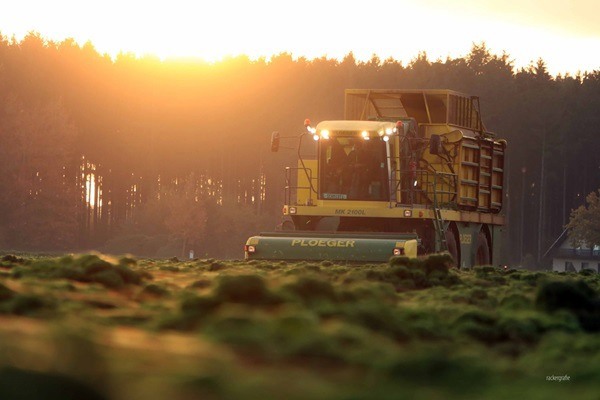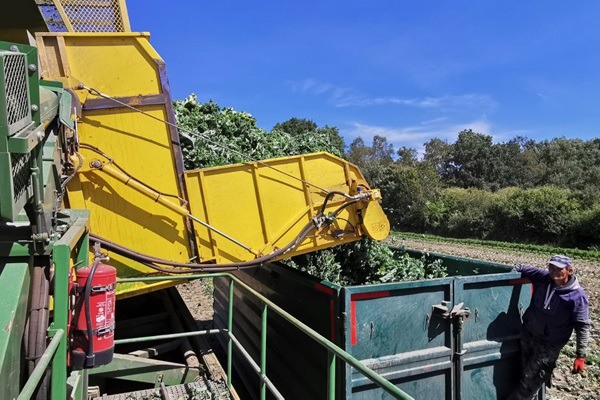The kale harvest in the Oldenburg Münsterland region is currently in full swing. "We usually harvest this vegetable until Christmas, but I would classify the yields so far as average. However, that can change quickly if we are confronted with devastating rainfalls and waterlogging like at the end of last year's season. But I'm not expecting that for now," reports Christoph Wehenpohl, who has been growing industrial goods in the Vechta area for eight years now.

"Due to the lack of seeds, we had to switch from the Winnetou variety, which has proven successful in the industrial area, to an alternative variety called Oldenbor. However, the latter variety has not met expectations in the current wet and cold autumn weather. If there is enough seeds available, we will switch back to Winnetou next year," says Wehenpohl, who cultivates the winter vegetable exclusively for ELO-Frost's frozen food processing in the Vechta area on approximately 60 hectares.
 The kale is harvested fresh and as needed from the field until around Christmas exclusively for ELO-Frost. The first early batches were already cut in July.
The kale is harvested fresh and as needed from the field until around Christmas exclusively for ELO-Frost. The first early batches were already cut in July.
Although kale is comparatively a fairly robust vegetable crop, climate change is also having an impact here, says Wehenpohl, who also produces spinach. "In particular, the downpours that we have experienced several times this year are causing us problems. These often unannounced, unpredictable rainfalls are disastrous for outdoor cultivation. In practice, this in turn leads to increased write-offs and price reductions."

Compared to the previous year, there has been a slight price increase, which is welcomed due to the increased labor and planting costs at the producer level. Wehenpohl: "The decisive factors are, on the one hand, rising wages, but on the other hand, the restriction of approved pesticides. In this respect, kale is still relatively robust and less susceptible to disease than spinach, for example, which we also produce."

In terms of sales, kale remains the quintessential winter vegetable. "In some areas, demand is already higher than our harvest. We are currently seeing a run on kale." The committed vegetable grower also sees slight growth potential in the near future. "In my opinion, there is still a little room for improvement, although the processing capacities of the ELO would then have to be expanded again at some point," he concludes.
For more information:
Christoph Wehenpohl 
Wehenpohl Gemüsebau
Oldenburger Str. 274
49377 Vechta
Tel: 04447/1690
E-Mail: [email protected]
https://www.wehenpohl.de/
